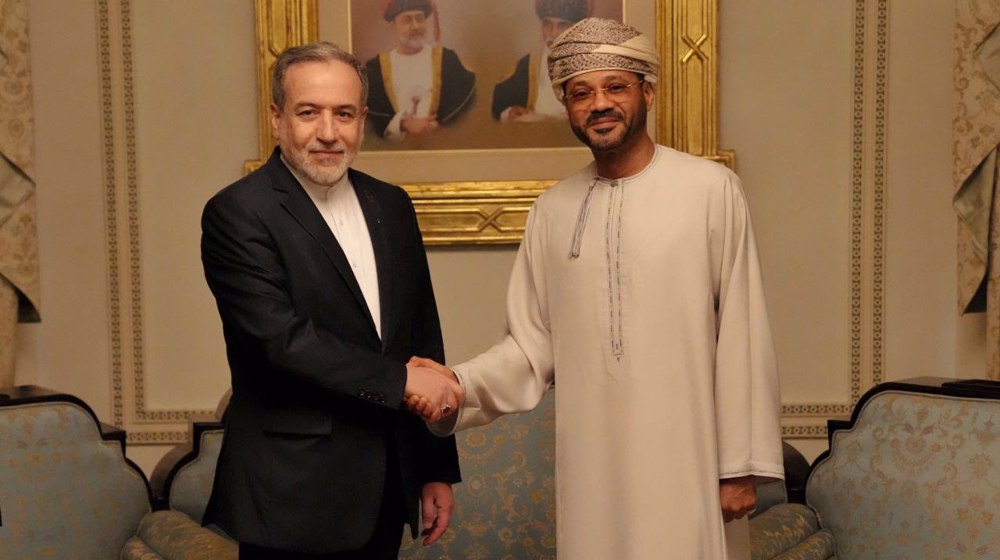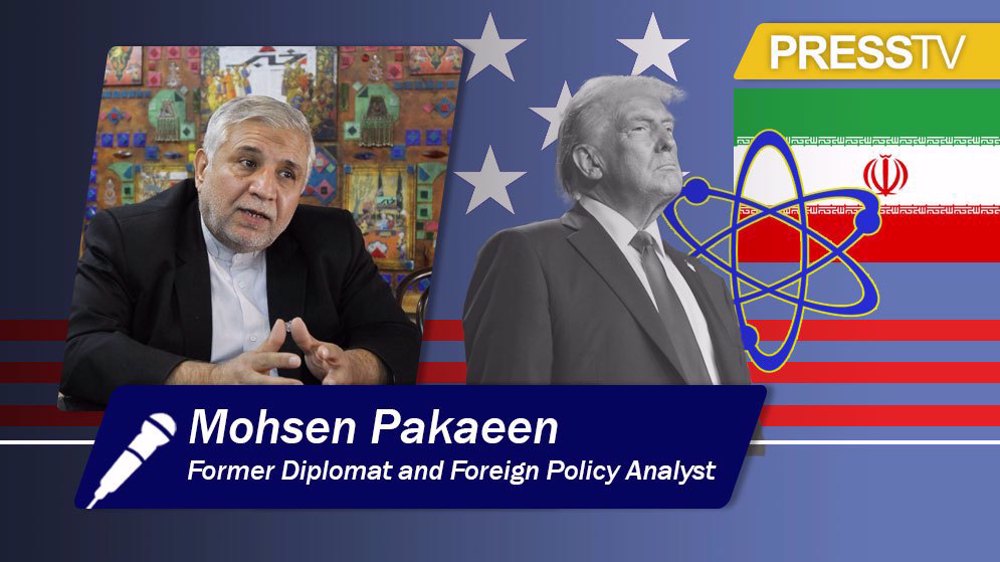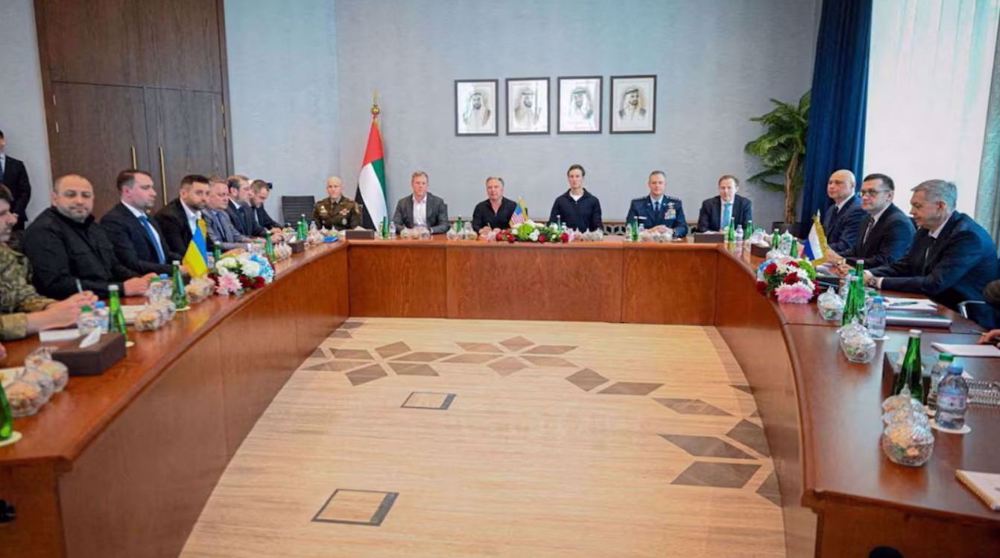US suspends obligations under INF treaty with Russia: Pompeo
The United States has officially announced the suspension of its participation in a landmark Cold War-era arms control treaty with Russia over claims that Moscow has been violating the key pact and jeopardizing Washington’s security interests.
US Secretary of State Mike Pompeo made the announcement at a press briefing at the State Department on Friday, saying that the US "will suspend its obligations” under the Intermediate-Range Nuclear Forces (INF) Treaty with Russia on February 2.
"For years, Russia has violated the terms of the Intermediate-Range Nuclear Forces Treaty without remorse. Russia has jeopardized the United States security interests and we can no longer be restricted by the Treaty, while Russia shamelessly violates it," Pompeo claimed.
"Russia's violations put millions of Europeans and Americans at greater risk. It is our duty to respond appropriately," he added.
The top US diplomat also said that Washington had provided "ample time" to Russia to return to compliance with the 1987 agreement.
Pompeo said the US would fully withdraw from the INF treaty in 180 days if Russia did not end its alleged violation of the pact.
“If Russia does not return to full and verifiable compliance with the treaty within the six-month period by verifiably destroying its INF-violating missiles, their launchers and associated equipment, the treaty will terminate,” he said.
US President Donald Trump and his senior officials had been signaling for months that they were ready to pull out of the INF treaty.
Russia says the US has for long been inventing a false pretext to exit the treaty so it can develop new missiles.
US pullout ‘a serious blow’ to arms pacts
Reacting to the US announcement, Russia’s Deputy Foreign Minister Sergei Ryabkov said the Washington’s withdrawal from the INF treaty posed a threat to the international security and the system of arms and nuclear arms control.
"This game is done, the Americans are sure to finally pull out of the (Intermediate-Range Nuclear Forces Treaty) treaty, this will be a serious blow to the international arms control system and the system of non-proliferation of weapons of mass destruction, which exist for now," Ryabkov said.
“We think that the agreement is essential, it is within interests of our security and European security. And it would be irresponsible for one side to shatter it," he noted.
Meanwhile, the Russian Foreign Ministry announced that Moscow was still ready to maintain dialogue on the INF treaty but reserved the right to respond to the US withdrawal from the pact.
The suspension announcement came a day after reports emerged that Washington and Moscow had made “no progress” in crunch talks on resolving their differences over the INF treaty.
Washington said in December it would withdraw from the INF within 60 days if Russia did not dismantle missiles that the US claims breach the deal. Russia rejects that allegation, and earlier offered US investigators access to examine the missiles for themselves.
INF requires the US and Russia to eliminate all their nuclear and conventional missiles with ranges of 1,000–5,500 km (620–3,420 mi). It also bans either side from stationing short- and intermediate-range, land-based missiles in Europe.
The accord was signed towards the end of Cold War in 1987 between former US President Ronald Reagan and former Soviet leader Mikhail Gorbachev.
Russia has denied violating the agreement and has accused the US instead of breaking the deal, adding that a withdrawal from the accord would trigger an arms race
NATO 'fully' supports US withdrawal from missile treaty
The NATO military alliance said Friday it fully supported the US decision to pull out from a Cold War-era missile treaty with Russia, claiming that Moscow was in breach of the agreement.
"The United States is taking this action in response to the significant risks to Euro-Atlantic security posed by Russia's covert testing, production, and fielding of 9M729 ground-launched cruise missile systems. Allies fully support this action," the transatlantic alliance said in a statement
The US-led military alliance, however, said Washington's treaty withdrawal would take six months to come into effect and that the period would give Russia an opportunity to return to compliance with the agreement.
"We continue to aspire to a constructive relationship with Russia, when Russia's actions make that possible," NATO said. "We urge Russia to use the remaining six months to return to full and verifiable compliance to preserve the INF Treaty."
Tensions have boiled over the fate of the INF, with Russian President Vladimir Putin threatening a new arms race if the agreement collapses.
In December last year, President Putin said his country could easily develop and deploy land-based intermediate-range missiles if the US carried out its threat to withdraw from the landmark treaty.
Putin said the US had decided long ago to abandon the treaty and is now looking for justifications by blaming Russia. He, however, said Russia is against scrapping the treaty.
Israeli keeps killing more Palestinian civilians in Gaza amid relentless ceasefire violations
Aliyev: Azerbaijani territory will not be used for threats against Iran
Turkey arrests two on charges of spying for Israeli regime
Iran FM declares ‘good start’ as US–Iran talks conclude in Muscat
Iran strongly condemns 'terrorist' mosque blast in Islamabad
Iran enters talks backed by national power, popular support: MP
France, UK involved in assassination of Muammar Gaddafi's son: Reports
Shia mosque explosion in Islamabad kills more than 30, injures over 160











 This makes it easy to access the Press TV website
This makes it easy to access the Press TV website